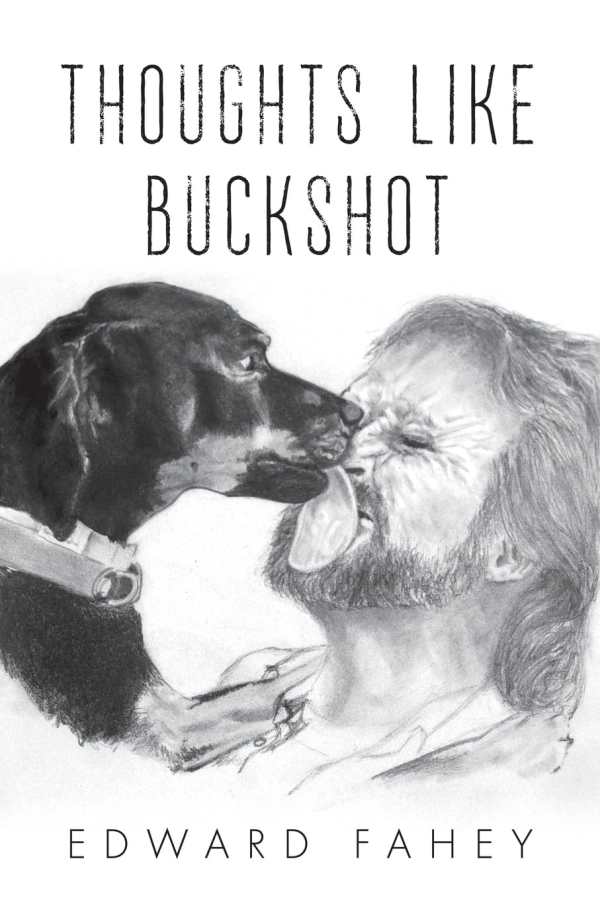Thoughts Like Buckshot
A bevy of topics are handled with candor and in an intimate style in the good-natured memoir Thoughts Like Buckshot.
Edward Fahey’s memoir-in-essays Thoughts Like Buckshot ponders a range of subjects with both ruminative depth and jocularity.
Fahey self-characterizes his reflections as being “scattered” yet penetrative, like buckshot ammunition. He recounts his childhood feelings of melancholy while “reading books about everything spooky and strange” and any “passing metaphysical frivolity.” Later, still fascinated by “weird, otherworldly stuff,” he attended theosophy and metaphysics lectures and studied with “psychics, healers, mediums, and philosophers.” Though he learned how to heal and redirect the troubled energies of other people, he continued to face mental and physical challenges.
Fahey also details living in rural self-isolation amid birds, raccoons, crickets, owls, and bears, covering the organic rhythms of mountainous forests. Throughout the book, Nature is capitalized and treated as a respected entity. And commentary on the creative process wends in beside examples of Fahey’s artwork; he discusses enhancing “emotions in a pencil-sketched face,” for example, which “calls for highlighting some shadows, diluting others, and inventing some that hadn’t been there.”
Other subjects are more personal, as with the pivotal development of an online relationship with Beatrix, a British woman who ventured to the United States to meet Fahey in person and who became a healing force in his life. Still, such topics are handled with candor and in an intimate style, as with journal notes recounting the couple’s visits to Stonehenge and Glastonbury and with the characterization of Beatrix as someone who repairs brokenness and neglect. (She once purchased a “fistful” of McDonald’s gift certificates and handed them out to homeless people in Manhattan, Fahey recalls with affection.)
There are also more mundane observations, as of the differences between British and American cuisine. Excerpts of Fahey’s novels and a running list of discarded lines from his prose dilute the book’s focus further. The latter comes without context, and its lines are jarring: “Like projectile vomiting on a crowded subway car. She was definitely someone you remembered for a very long time” is sandwiched between the floating descriptor “downright charismatic” and a bit of disconnected dialogue.
At times, the book’s humor is discordant with its focus on connection, personal reclamation, and what lies “beyond the beyond.” Off-putting assertions arise, such as “I still like to bonk people on the head with those cardboard tubes that come with wrapping paper. I even do it to strangers. They don’t like it much. Especially in church, when they’re kneeling.” References to flatulence, including vanishing “like a fart in a skunk stampede,” are too prevalent as well. More effective are recollections of interactions with affable, opinionated Italian waiters who took liberties with Fahey’s orders and showed him pictures of their babies.
Observational and eclectic, the memoir Thoughts Like Buckshot contemplates creativity, self-emergence, and universal interconnection.
Reviewed by
Meg Nola
Disclosure: This article is not an endorsement, but a review. The publisher of this book provided free copies of the book and paid a small fee to have their book reviewed by a professional reviewer. Foreword Reviews and Clarion Reviews make no guarantee that the publisher will receive a positive review. Foreword Magazine, Inc. is disclosing this in accordance with the Federal Trade Commission’s 16 CFR, Part 255.

